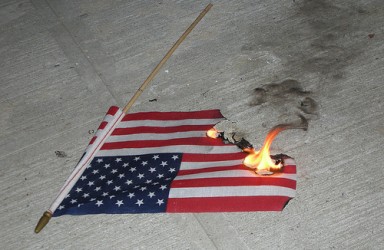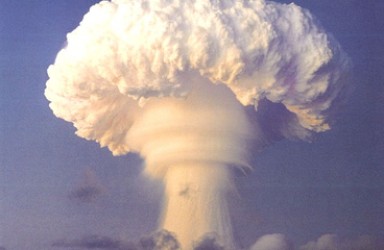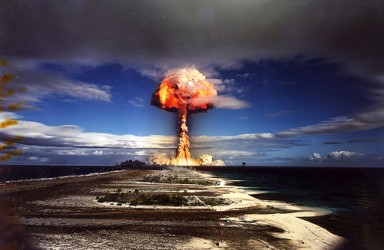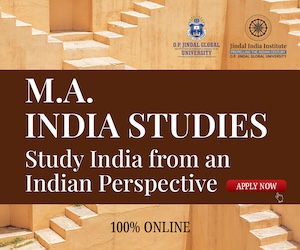International Law and the Bush Doctrine
The Bush doctrine took shape throughout the aftermath of the 9/11 attacks, developing in various speeches by the President and high ranking staff. This essay considers how the doctrine complimented, or challenged international law.
The Politics of Power and the Power of Faith: Retracing Martin Wight’s Legacy
Whilst disciples and collaborators such as Hedley Bull, Robert Jackson and Brian Porter speak of Marin Wight as a seminal thinker and erudite scholar, others such as Alan James claim that his influence on the discipline is limited. This paper proposes to assess Wight’s impact on the study of International Relations.
Anti-Americanism in Turkey since 9/11
There is certainly Anti-Americanism in Turkey and it has increased substantially after 9/11. Many polls conducted on Anti-Americanism show this fact clearly. But why has it increased, and what does the future hold now that Obama has been elected US President?
What are the Challenges to Nuclear Deterrence in the Second Nuclear Age?
This first introduces nuclear deterrence during the Cold War before considering nuclear proliferation and nuclear deterrence more broadly. It then examines state methods of responding to transnational terrorism, and finally explores further issues in contemporary international security challenging the centrality of deterrence in the Second Nuclear Age.
Terror in the Maghreb
Terrorism in the Islamic Maghreb (lit. “the West”) has been given relatively little attention in the post-9/11 era, in spite of a new journalistic and academic obsession with terrorism spanning nearly a decade. Terrorism in North Africa has been relegated to secondary importance, overshadowed by terror in Iraq, Afghanistan, and the Occupied Territories. Terror in the Maghreb is nonetheless on the rise, and has been shown to have intimate links with violence in other regions of the Islamic world such as Iraq.
The Role Played by ‘spoilers’ in Peace Processes
Peace processes are very often lengthy and difficult, many cease-fires negotiated to end civil wars often result in a return to violence, sometimes worse than before. This essay will examine the role of those actors who ‘actively seek to hinder, delay, or undermine conflict settlement’ for a range of reasons and through a variety of methods.
Did the Creation of NATO Prevent the Establishment of Europe as a ‘third force’ Between East and West During the Cold War?
There was never sufficient political will for an independent European security identity to be pursued in the early years of the Cold War. European states actively put their trust in the United States to act as guarantor for the continent.
Nuclear Non-use: Rational Deterrence, Prudence or a Long-lasting Taboo?
The subject of this essay asks how the issue of nuclear non-use lends itself to constructivist understandings, namely to the interpretation of ongoing processes of social interaction determined by shared ideas.
In the Post-9/11 Era is “The Responsibility to Protect” Irrelevant?
The responsibility to protect individuals from violations of their human rights around the world has been a movement increasing in intensity since the end of the Cold War. Since 9/11, the responsibility to protect has perished, and its corpse is now being used as a disguise for self-interest and self-security
A Liberal Structure for Realist Uses: International Development and the Question of Whose Interests Are Being Met?
International development is merely another tool in the proverbial toolbox of statesmen and global actors. It is an effective way to create the conditions necessary to best secure one’s interests.















